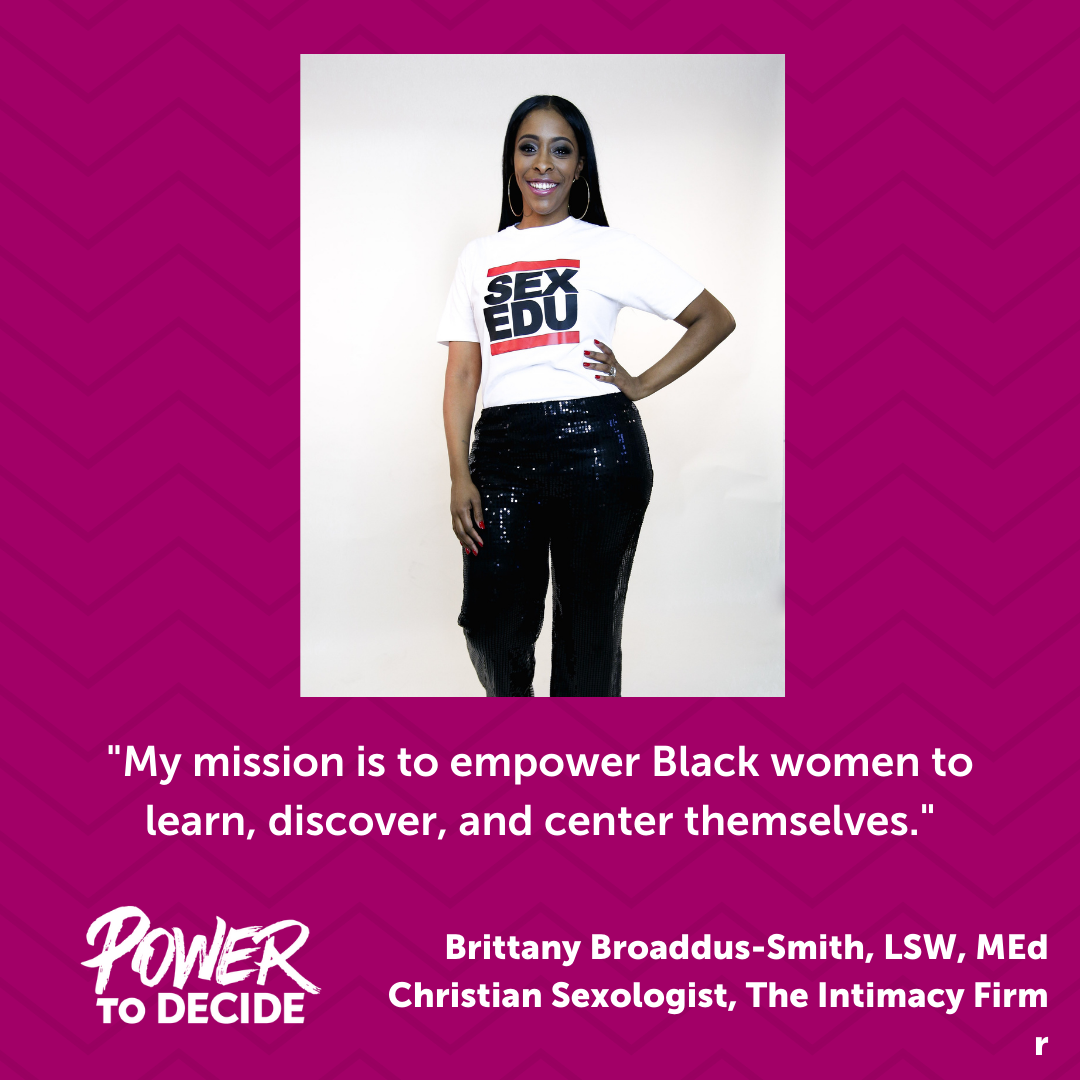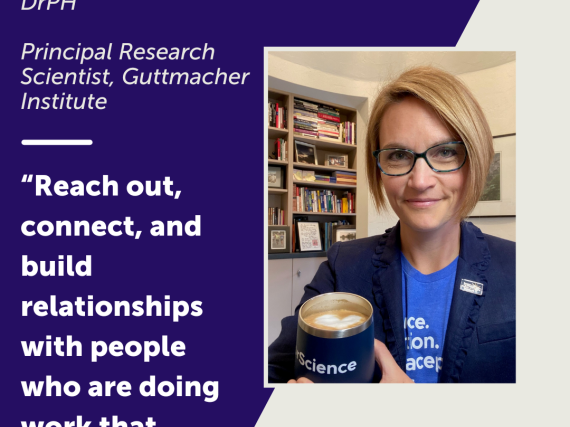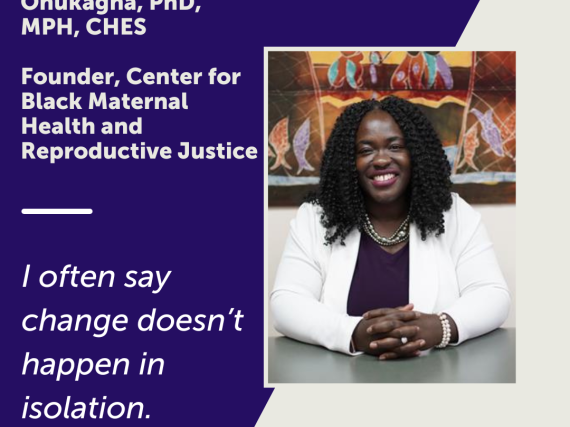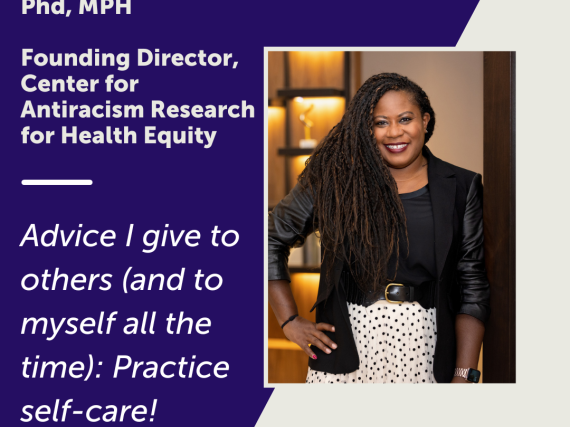December 2021 Power Player
At Power to Decide, we’re committed to uplifting the many individuals on the ground doing the work that matters most. Each month we highlight an individual who is championing the effort to support young people’s reproductive well-being. Check out this month's Power Player profile.
Brittany Broaddus-Smith, LSW, MEd
Christian Sexologist, The Intimacy Firm
What work have you done to ensure that all people have the information and access they need to make decisions that align with their intentions and improve their reproductive well-being?
As a Christian Sexologist I work directly with people of faith, particularly Black, Christian women to help them understand that being a sexual being and being a Child of God aren’t mutually exclusive things. We unpack the inherent sex positivity of the Bible and God himself. I work to close the gap between Christianity and pleasure-centered sexuality. I want people to make informed decisions. And even for those who choose abstinence, I want them to understand that sexual health is an important part of all our lives.
I lead workshops and classes, I speak and teach, and I even do fun things on social media. I am committed to make this big idea of “sexuality” more attainable, especially for those who are traditionally left out of sexual wellness and sex positivity conversations.
How did you get started in your field? What is your driving force?
I started in social work. I really wanted to do just clinical work with couples. But as a Christian I spend a lot of time in churches, and I also got married really early. I noticed that my lens on being a sexual being and being Christian was very different from some of the older congregants. Through my studies at Temple University and Widener University’s human sexuality program, I recognized that there was more possible to this work than being a clinician. Working with couples one on one is good, but it really is being out in the forefront, doing workshops and even teaching from the pulpit sometimes that has had the biggest impact. Including conversations on sexual health, and merging science and theology is purposed to show that we’re (believers and non-believers) not so different.
I am driven by my love, love, love, love of Black women. Any space where we aren’t centered or supported is a problem for me and the sexual wellness and pleasure spaces are two of them. My mission is to empower Black women to learn, discover, and center themselves. I literally cannot imagine myself doing anything else. Whether it’s during my signature Daring Discussion Sex & Relationships game night, If God Created My Clitoris Sex positivity workshop, or hosting My Vulva and Me (a web series written directed, and designed all by Black women) it’s about creating a space for us, about us, and by us.
This is our place; we’re not trying to find a place. To me, sexual wellness is when you’re able to just be, not perform. I do what I do so Black women can just be.
What advice would you give to someone looking to effect change in the field that you currently work in?
Find your passion. What is that pain point that you either have or had as a young person or that you see in the world? Address that in the way that only you can.
That’s what I love about this field. There are so many of us, but we all do something different. And even when we talk about the same things there are 1,000s of ways in which the person who is leading a class or workshop can do it their own way.
Find your way. Be authentic to it. Show up in the way that your audience told you they need you to show up not in the way the algorithm wants you to show up. Write the resource, create the resource, be the resource you wanted but couldn’t find.
Why should someone care about ensuring that all people—regardless of who they are or where they live—have the information and access they need to live their best life?
Honestly, as much as we like to think we aren’t, we are so interdependent on one another that one person being able to live and be their best self only makes it easier for the next person to do the same.
In the world we live in when particular groups are kept out of conversations, are marginalized, or are discriminated against, it makes life harder for everyone else. Even if you don’t work in this field, regardless of who you are reproductive health is so important. Every part of our world impacts or is impacted by reproductive health. So, whatever your jam is when you pull back the layers there is a reproductive justice need that you can find. If you want our world to continue and not turn to dust we all need to be aware of that and focus on doing what we can to ensure that everyone has the equitable access that they need.



